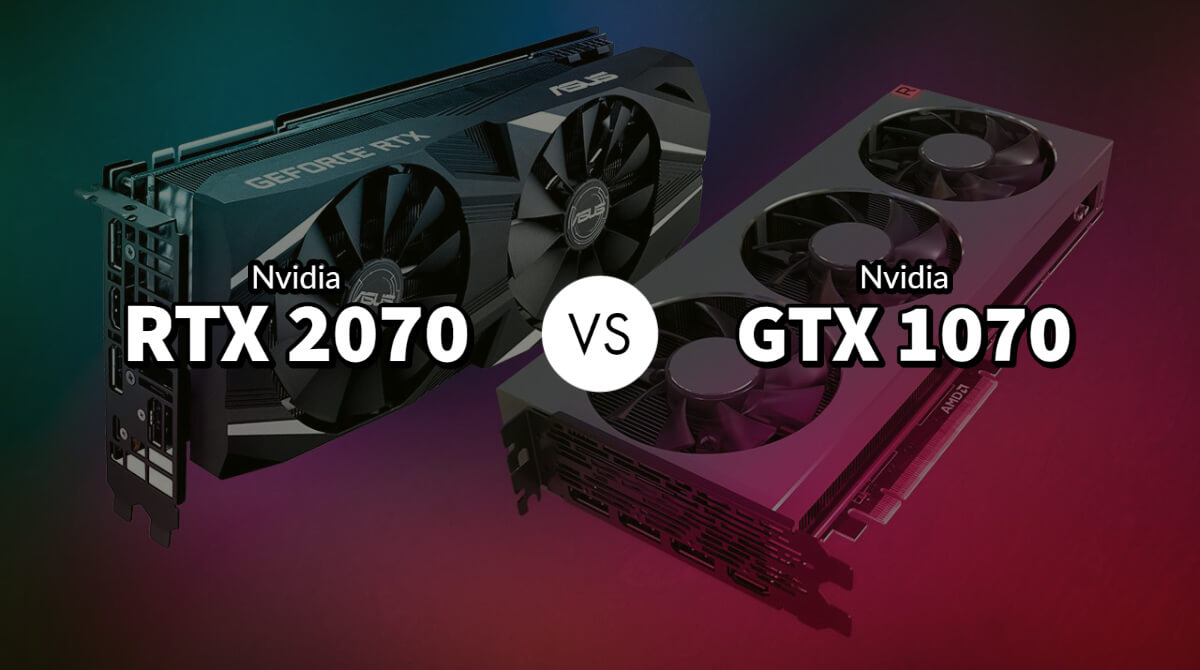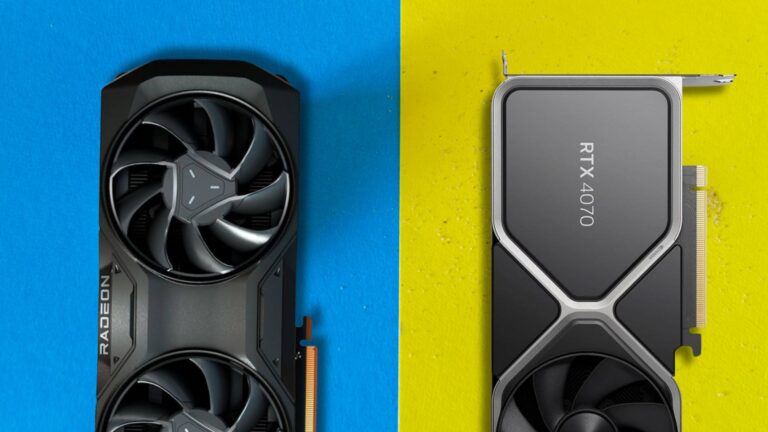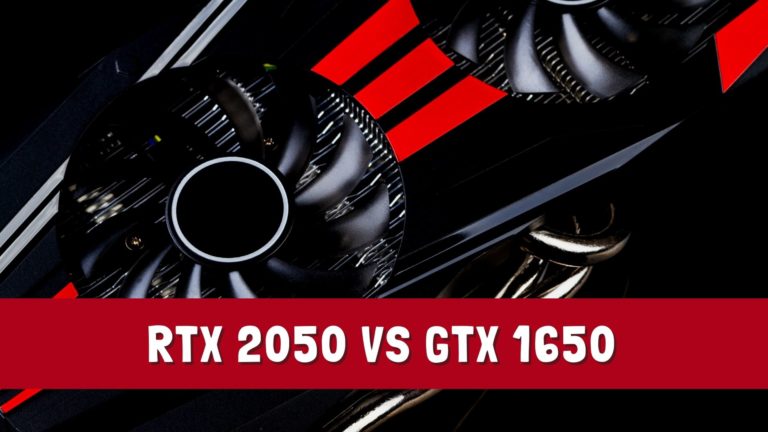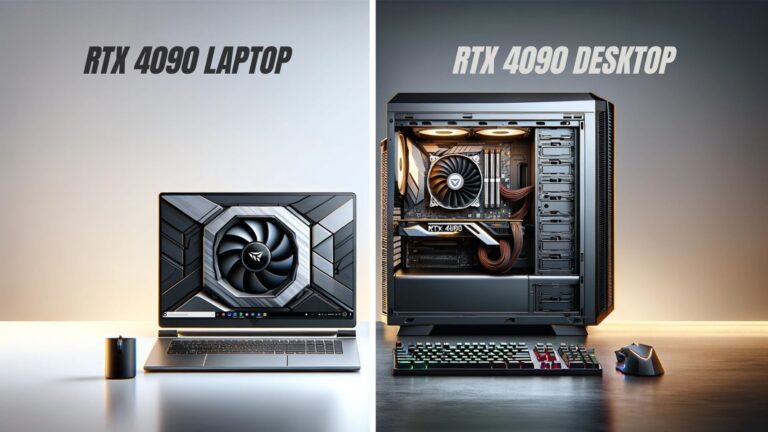The Nvidia RTX 2070 and older GTX 1070 are both powerful gaming graphics cards, but which should you pick, and is it worth upgrading?
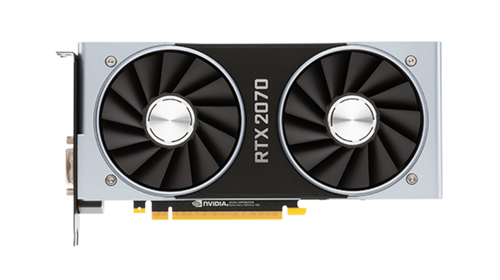 | 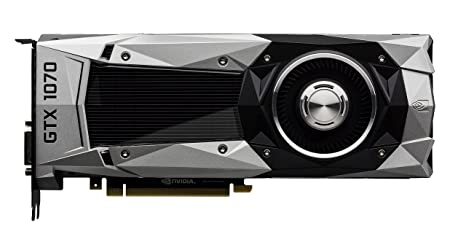 |
|---|---|
| RTX 2070 | GTX 1070 |
| BUY NOW | BUY NOW |
| PROS | PROS |
| Playable 4K gaming across a variety of titles. Impressive synthetic performance. Surprisingly lower energy consumption. | Excellent 1440p gaming performance. Fantastically overclockable. Very power efficient Super quiet while running. |
| CONS | CONS |
| Expensive for a ‘mid-range’ GPU. RTX and DLSS-enabled games still not out yet. No SLI option. | Limited SLI capabilities |
SPECIFICATIONS
| OVERVIEW | GTX 1070 | RTX 2070 |
| Card Status | Released | Released |
| Manufacturer | NVIDIA | NVIDIA |
| Release Date | 10th June, 2016 | 17th October, 2018 |
| Launch Price | $379 USD | $499 USD |
| Board Model | NVIDIA PG411 | NVIDIA PG160 |
| GPU | GTX 1070 | RTX 2070 |
| GPU Model | 16nm GP104-200 | 12nm TU106-400/A |
| Cores : TMUs : ROPs | 1920 : 120 : 64 | 2304 : 144 : 64 |
| CLOCKS | GTX 1070 | RTX 2070 |
| Base Clock | 1506 MHz | 1410 MHz |
| Boost Clock | 1683 MHz | 1620 MHz |
| Memory Clock (Effective) | 2002 (8008) MHz | 1750 (14000) MHz |
| Computing Power (FP32) | 5,783 GFLOPS | 6,497 GFLOPS |
| MEMORY | GTX 1070 | RTX 2070 |
| Memory Size | 8192 MB GDDR5 | 8192 MB GDDR6 |
| Memory Bus Width | 256-bit | 256-bit |
| Memory Bandwidth | 256.26 GB/s | 448 GB/s |
| PHYSICAL | GTX 1070 | RTX 2070 |
| Interface | PCI-Express 3.0 x16 | PCI-Express 3.0 x16 |
| Thermal Design Power | 150 W | 175 W |
NOTE – Things like clock speed and power will vary between specific cards, these are just the reference specs for each model.
Important differences to take note of are that the RTX 2070 is based on Nvidia’s newer Turing architecture and has more Cuda cores but lower base and boost clock speeds out of the box when compared with the Pascal GTX 1070. They both have 8GB of memory, but the newer 2070 is making use of GDDR6, and of course it also supports newer features like ray tracing.
PERFORMANCE
For the testing I’m using the MSI RTX 2070 Gaming Z, while the 1070 was the Galax GTX 1070 EX. Expect slightly different results with different models.
The system that I’m testing with has an Intel i9-9900K CPU in an MSI X470 Gaming Pro Carbon motherboard running at stock speeds, along with 16GB of RAM running at DDR4-3200 in dual channel.
Let’s get into the results.
Battlefield 1
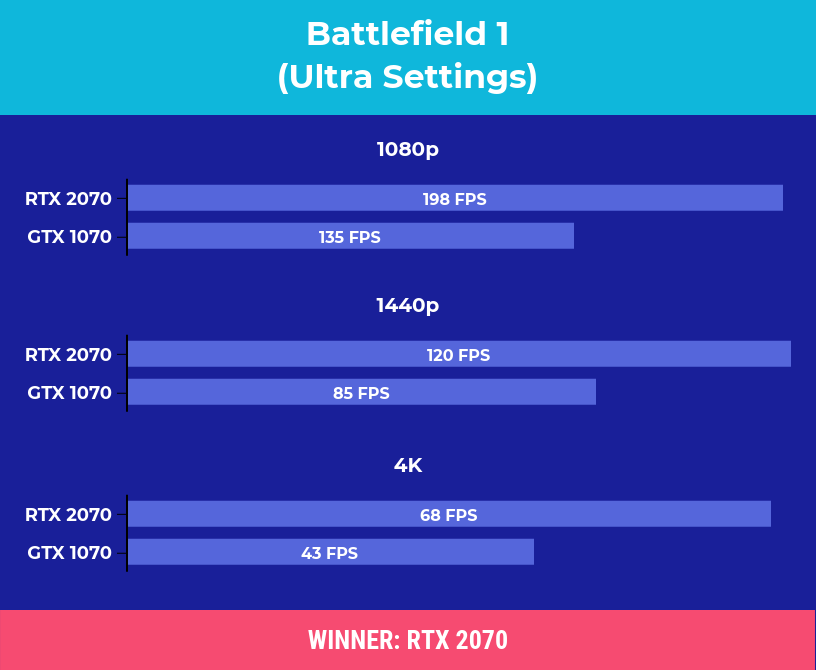
Battlefield 1 was tested in campaign mode rather than multiplayer, as it’s easier to consistently reproduce the test run, and it seems to be more graphically intensive. At 1080p, the 2070 is scoring 31% higher average FPS compared to the 1070. At 1440p the 2070 is now getting 29% higher average FPS, and then at 4K it’s performing 36% better.
Deus Ex: Mankind Divided
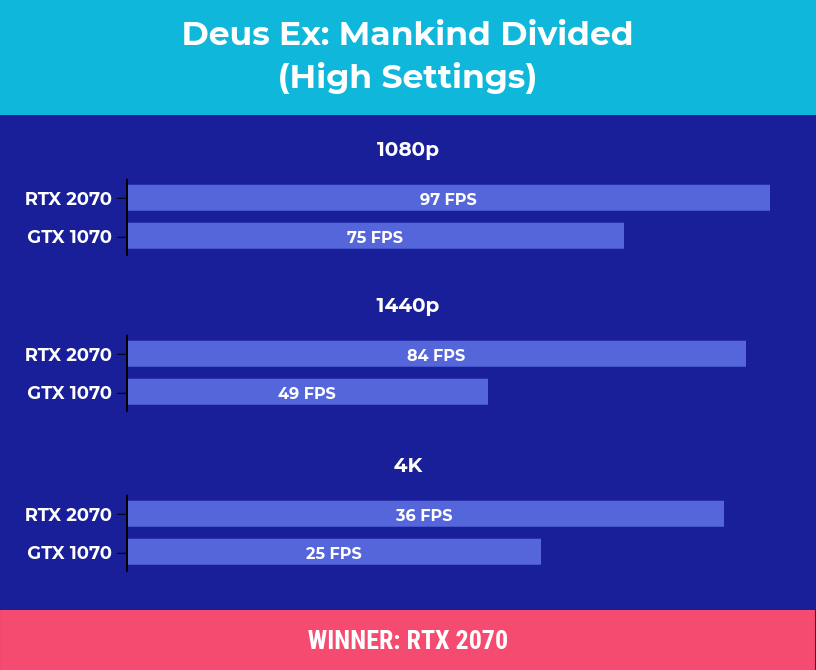
Deus Ex: Mankind Divided was tested using the built in benchmark at high settings. At 1080p there was a 27% improvement to average FPS, a 41% improvement at 1440p, and then a 30% improvement at 4K.
Far Cry Primal
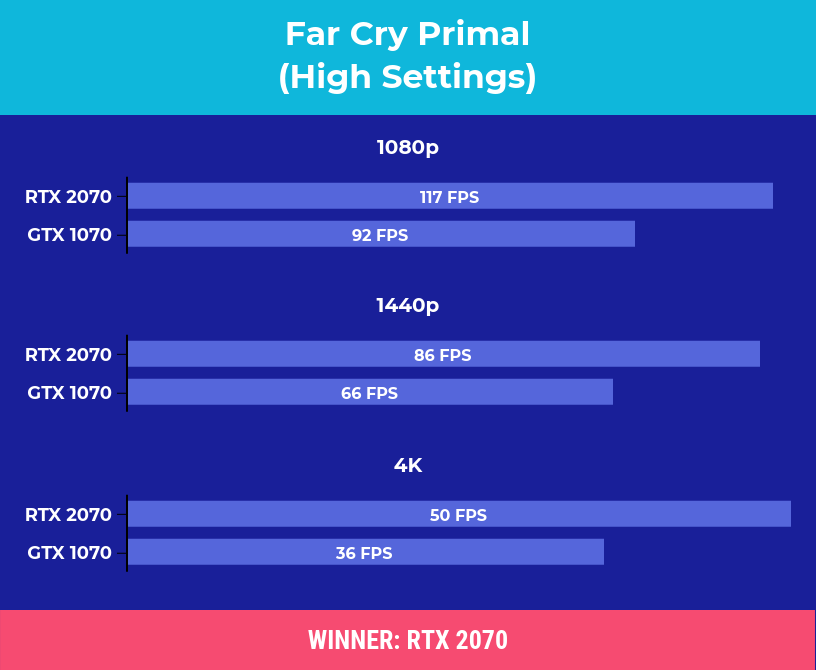
Far Cry Primal was tested using the built in benchmark with high settings. At 1080p the 2070 was getting 21% higher average FPS. With the resolution set to 1440p the 2070 was now getting 23% higher average FPS. Finally at 4K there was a similar improvement to averages, 28% with the 2070.
Gear of war 4
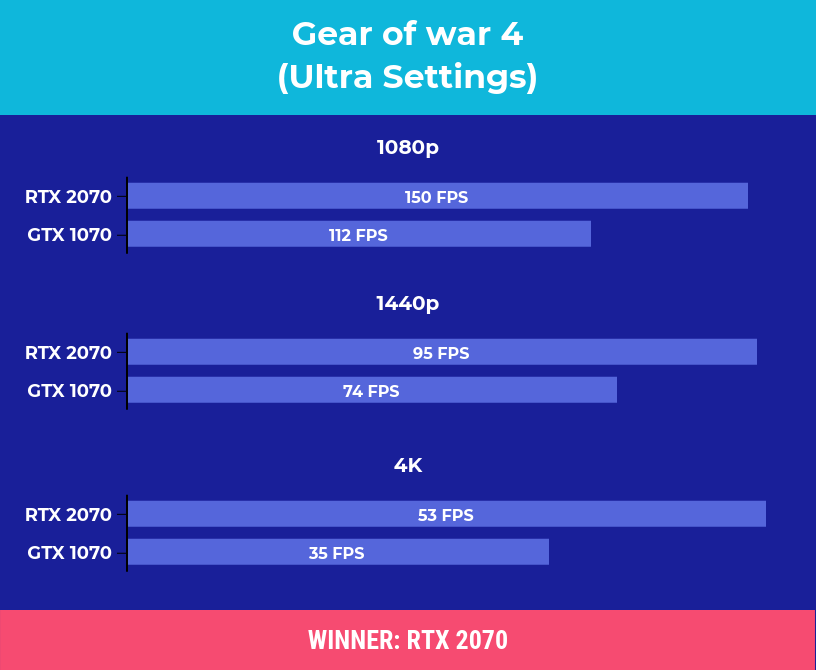
Gear of war 4 was tested with the replay feature using the exact same replay with high settings. At both 1080p and 1440p there was a 23.5% increase to average FPS with the 2070, and this increased to a 33% improvement at 4K.
GTA V
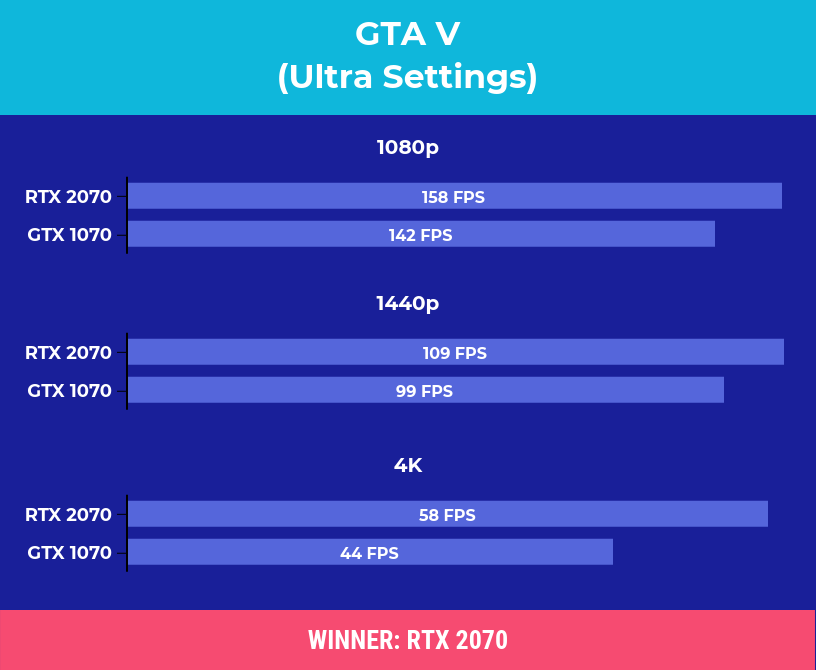
GTA V was tested with the Ulletical FPS benchmark. Again the here the clear winner is RTX 2070. In terms of difference, at 1080p, RTX 2070 was 10% faster then at 1440p 9% faster. I have to say that GTX 1070 was fighting well in 4K and finally for 4K difference, RTX 2070 was 14FPS ahead or 24% faster.
Hitman
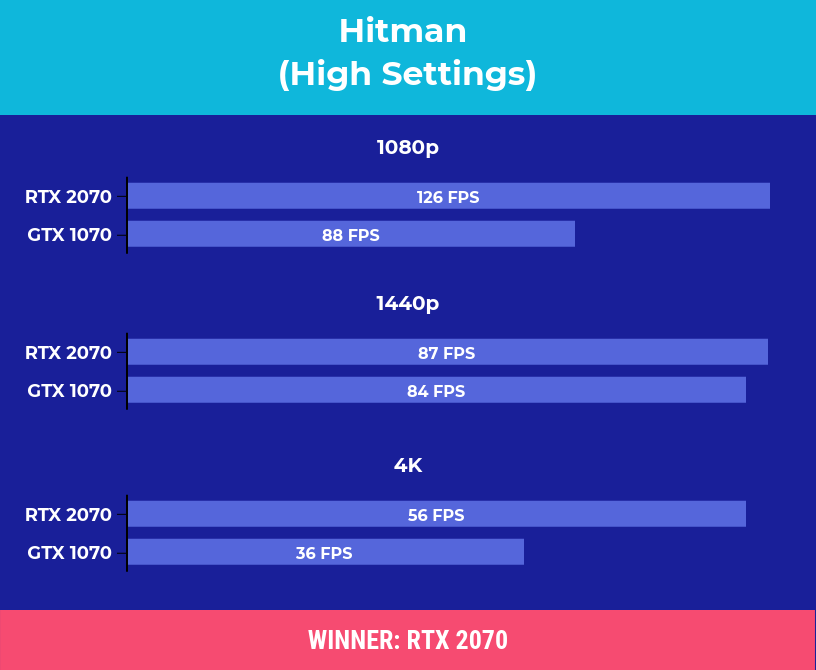
Hitman was tested in the practice range as I can easily perform the same test run. At 1080p there was only a 30% improvement to the average frame rate, however interestingly it was 3% ahead when it came to 1440p, and then again a 35% difference at 4K.
Rise of the Tomb Raider
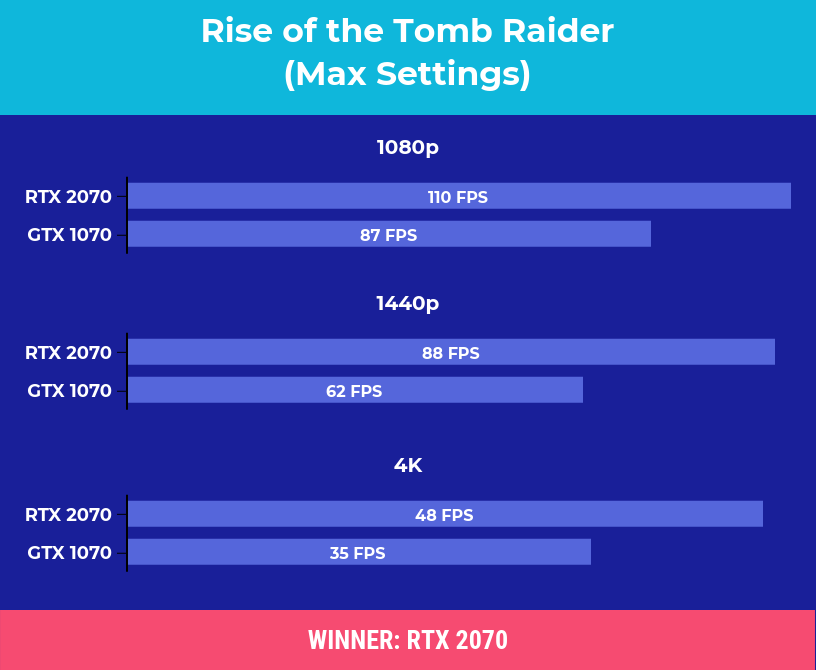
Rise of the Tomb Raider was also tested using the built in benchmark, and there were some fairly big gains in this test with the RTX 2070. At 1080p the 2070 was getting 20% higher average FPS, 29% higher average FPS at 1440p, and then 27% higher at 4K.
Star Wars Battlefront
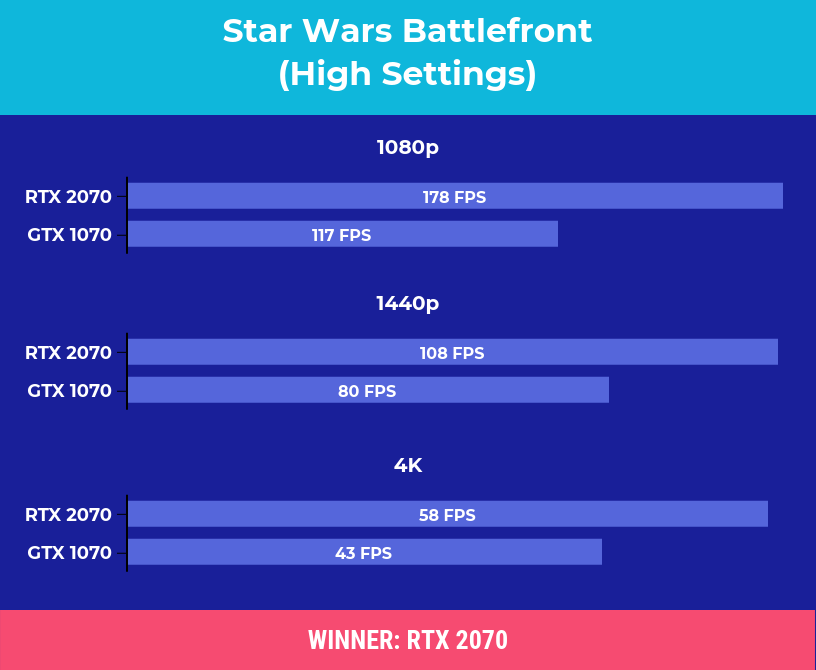
Star Wars Battlefront was tested using the replay feature with the exact same replay at high settings. At 1080p the RTX 2070 was getting 34% higher average FPS. Stepping up to 1440p getting 25% higher average FPS. Similar results at 4K, with the 2070 getting 25% higher in average FPS.
Total War Warhammer
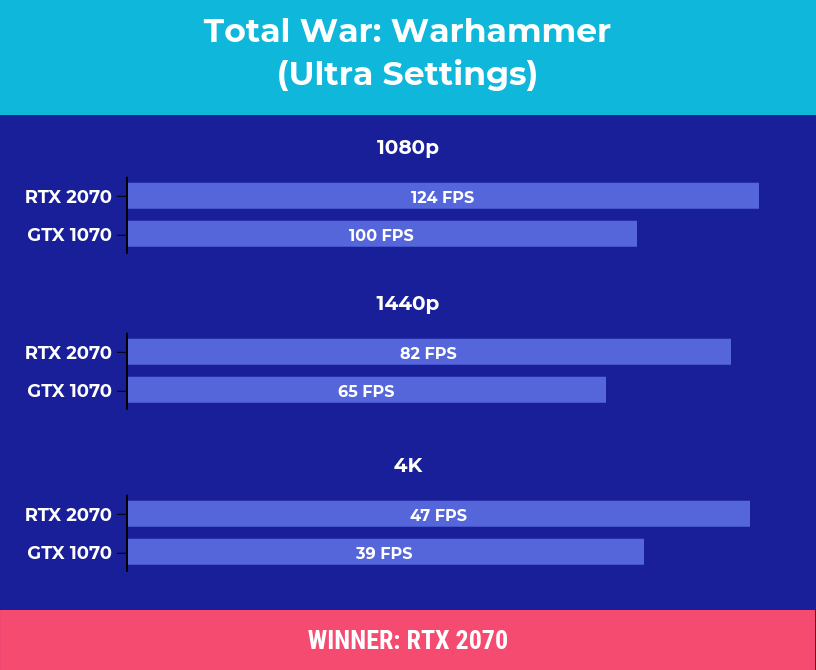
Total War Warhammer was tested with the built in benchmark, and again really good improvements with the 2070. There was a 19% improvement with the 2070 at 1080p, 20% at 1440p, and then 18% at 4K.
Watch Dogs 2
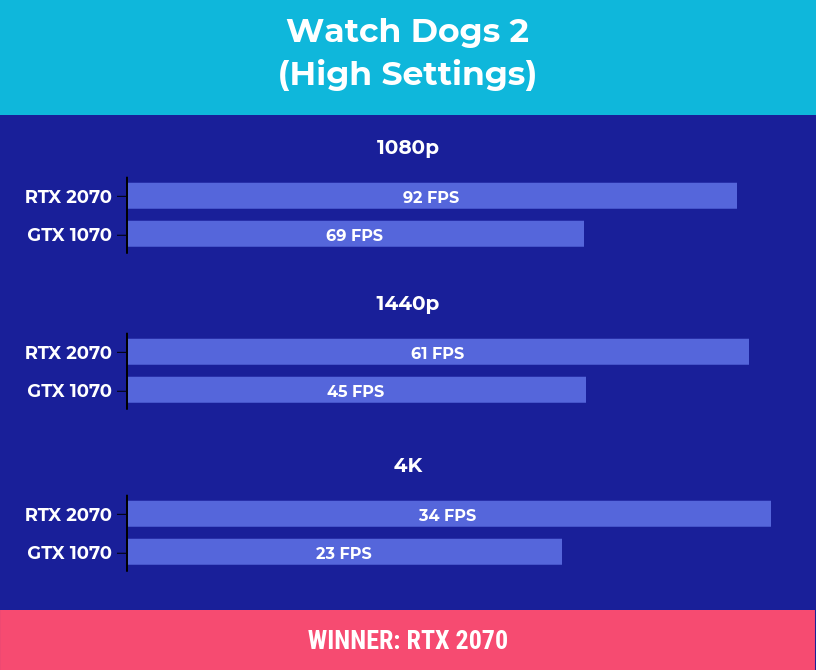
Watch Dogs 2 is a resource intensive game, and I can play it alright with a solid 30 FPS, and I didn’t find it too bad even at 4K with very high settings on the 2070, though I would of course use lower settings to improve the frame rate. Anyway at 1080p the 2070 was 25% higher in terms of average FPS, 26% better at both 1440p, and 32% faster at 4K.
CONCLUSION
Price
The 2070 Gaming Z tested here goes for $600 and Galax GTX 1070 EX was around $650. There are of course cheaper models available that will only realistically perform a few FPS lower.
Which one you should Buy?
It depends on prefrence, if you want to play games at 4K or 1440p then you should go for RTX 2070. On the other hand, if you’re just playing at 1080p, then definitely you can save some bucks by going with GTX 1070.
Overall, I will recommend you to buy RTX 2070 because there is not too much price difference, when compared to GTX 1070.
